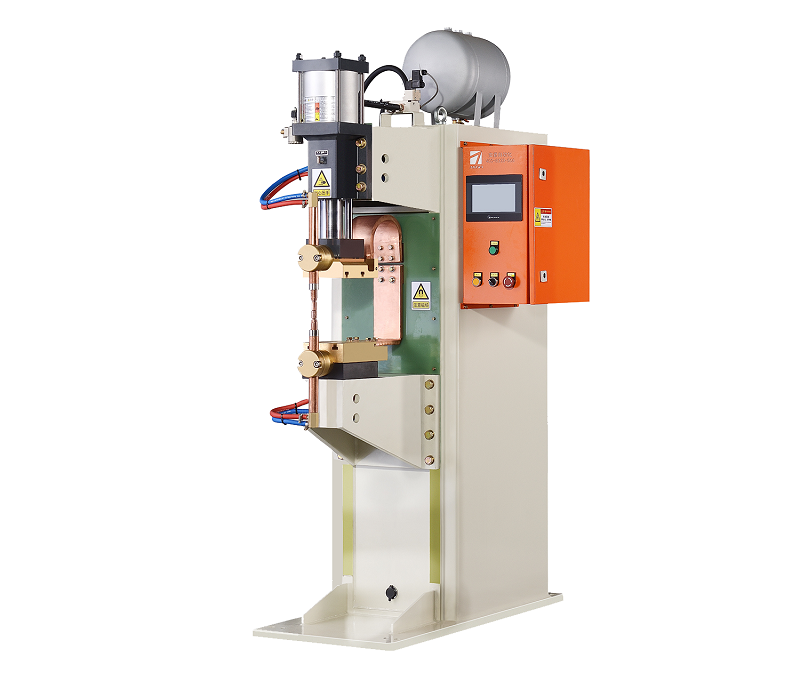Mechanical Structural Features of Medium-Frequency Inverter Spot Welding Machine
The medium-frequency inverter spot welding machine is a versatile and widely used equipment in various industries. It features specific mechanical structural characteristics that contribute to its efficient and precise welding performance. This article provides an overview of the key mechanical structural features of a medium-frequency inverter spot welding machine.

- Frame Structure: The frame structure of a medium-frequency inverter spot welding machine is typically made of high-strength steel or cast iron. It provides stability, rigidity, and support for the various components of the machine. The frame is designed to withstand the forces and vibrations generated during the welding process, ensuring accurate and stable electrode positioning.
- Electrode System: The electrode system consists of the upper and lower electrodes, electrode holders, and their respective mechanisms. The electrodes are typically made of high-quality copper alloys with excellent conductivity and thermal properties. The electrode holders allow for easy adjustment of electrode force, stroke, and positioning, enabling precise and consistent welding results.
- Welding Transformer: The welding transformer is a vital component of the medium-frequency inverter spot welding machine. It converts the input voltage into the desired welding current and provides the necessary power for the welding process. The transformer is designed with high-efficiency magnetic cores and winding configurations to ensure optimal energy transfer and minimize energy losses.
- Control System: The control system of a medium-frequency inverter spot welding machine incorporates advanced technology and microprocessor-based control units. It enables precise control of welding parameters such as welding current, welding time, and electrode force. The control system also includes safety features and monitoring functions to ensure reliable operation and protect the machine and operators.
- Cooling System: To dissipate the heat generated during the welding process, medium-frequency inverter spot welding machines are equipped with efficient cooling systems. These systems typically include cooling fans, heat sinks, and coolant circulation systems. Proper cooling is essential for maintaining optimal operating temperatures and preventing overheating, ensuring continuous and reliable welding performance.
- Safety Features: Medium-frequency inverter spot welding machines are designed with various safety features to protect operators and prevent accidents. These features may include emergency stop buttons, safety interlocks, thermal overload protection, and voltage monitoring systems. Safety considerations are an integral part of the machine’s mechanical design and contribute to a safe working environment.
The mechanical structural features of a medium-frequency inverter spot welding machine play a crucial role in its performance, accuracy, and safety. The robust frame structure, precise electrode system, efficient welding transformer, advanced control system, effective cooling system, and comprehensive safety features are key elements that contribute to the machine’s reliability and productivity. Understanding these mechanical characteristics can help operators and technicians optimize the operation, maintenance, and troubleshooting of medium-frequency inverter spot welding machines in various industrial applications.